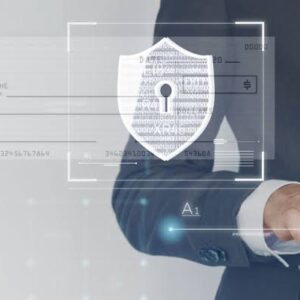Are you curious about the buzz surrounding decentralized applications (DApps)? Have you heard of blockchain-based systems but aren’t sure how they can benefit you? Look no further! In this blog post, we will explore seven benefits of DApps that are transforming the way we interact with technology. From increased security to improved transparency, discover why decentralized applications are leading the charge towards a more efficient and equitable digital world. So grab a cup of coffee and join us on this journey through the exciting advantages of blockchain-based systems!
What are Decentralized Applications (DApps)?
Decentralized applications are digital applications or programs that run on a decentralized network. A decentralized network is a peer-to-peer network that is not centrally controlled by any single entity. Decentralized networks are often more secure and efficient than centrally controlled networks because they are not reliant on a single point of failure.
Blockchain technology is the underlying technology that powers decentralized applications. Blockchain is a distributed database that allows for secure, transparent and tamper-proof transactions. Because blockchain is decentralized, it is not controlled by any single entity, making it more secure and resilient than traditional centralized systems.
The advantages of decentralized applications include:
-Increased security: Because decentralized applications are not centrally controlled, they are less vulnerable to security breaches.
-Greater efficiency: Decentralized applications can be more efficient than traditional centralized systems because they eliminate the need for intermediaries.
-Improved transparency: The use of blockchain technology enables transparent and tamper-proof transactions, which can help to reduce fraud and corruption.
The Advantages of DApps
DApps have a number of advantages over traditional applications. Perhaps the most obvious advantage is that DApps are decentralized, meaning they are not subject to the control of a single entity. This decentralization offers a number of benefits, including improved security and resistance to censorship.
Another advantage of DApps is that they are often open source, meaning that anyone can audit the code to ensure that there are no hidden vulnerabilities. This also makes it easy for developers to build on existing DApp platforms, further increasing the overall ecosystem.
Finally, DApps have the potential to revolutionize how we interact with online services. By utilizing blockchain technology, DApps can offer a more user-friendly experience while still maintaining the highest levels of security and transparency.
How Do DApps Work?
To understand how DApps work, we need to first understand what they are. A DApp is a decentralized application that runs on a distributed ledger, such as a blockchain. Unlike traditional apps, which are centrally hosted and run on a single server, DApps are distributed across a network of computers, or nodes. This makes them more resistant to tampering or shutdown by a single entity.
DApps can be built on top of existing blockchain protocols, such as Bitcoin or Ethereum, or they can be created using new blockchains designed specifically for DApp development. In either case, each DApp has its own smart contracts, which define the rules and conditions under which it operates.
When someone wants to use a DApp, they first need to install a digital wallet that supports the blockchain the DApp is built on. They then need to acquire some of the native cryptocurrency needed to interact with the DApp. For example, if you want to use a DApp built on the Ethereum blockchain, you will need to acquire some ETH.
Once you have installed a digital wallet and acquired the necessary cryptocurrency, you can interact with any DApp simply by visiting its website or launching its app. When you do so, your digital wallet will connect to the appropriate blockchain and facilitate your interactions with the DApp according to its smart contracts.
What is the Future of DApps?
Decentralized applications, or DApps, are a new breed of software that runs on a decentralized network. While traditional apps rely on central servers to store and process data, DApps use a peer-to-peer network of computers to do this. This means that no single entity has control over the data or the code – it’s distributed across the network.
The advantages of DApps include increased security, transparency, and decentralization. Because DApps are built on a blockchain, they are incredibly secure. The data is stored in a distributed ledger that is immutable and transparent – meaning anyone can see what’s going on. And because there is no central point of control, DApps are more resistant to censorship and fraud.
The future of DApps is bright. With the advantages they offer, it’s likely that we will see more and more businesses moving towards this model. We could see traditional centralized applications like Facebook and Uber being replaced by decentralized versions that offer improved security and privacy.
Are There Any Risks Associated with DApps?
Decentralized applications (DApps) have been gaining in popularity due to their many potential benefits. However, it’s important to be aware of the risks associated with DApps before using them.
One of the biggest risks with DApps is that they are often built on top of existing blockchain platforms, which means that they inherit all of the risks associated with those platforms. For example, if a blockchain platform is hacked or experiences a software glitch, any DApps built on top of it could be affected.
Another risk to consider is that DApps are often open-source, which means that anyone can view and potentially modify the code. This could lead to security vulnerabilities being introduced into the code, which could be exploited by malicious actors.
Finally, because DApps are still relatively new and experimental, there is a lack of understanding about how they work and how to use them securely. This could lead to users making mistakes that could put their funds at risk.
Overall, while there are some risks associated with using DApps, these should be weighed against the potential benefits before deciding whether or not to use them.
How to Create a DApp
A DApp is a decentralized application that uses blockchain technology to provide a secure, transparent and tamper-proof way of conducting transactions.Blockchain-based systems are slowly but surely gaining traction as they offer many advantages over traditional centralized systems. One such advantage is the fact that they are extremely difficult to hack due to the distributed nature of the ledger. This makes them ideal for applications where security is paramount, such as in the financial sector.
Another advantage of blockchain-based systems is that they offer transparency and immutability. Transactions conducted on a blockchain are visible to all parties involved and cannot be altered retroactively without the consensus of the network. This makes them perfect for use cases where trust is important, such as in voting or supply chain management.
Finally, blockchain-based systems have the potential to be much more efficient than traditional centralized systems. Because there is no need for intermediaries or third parties to verify transactions, processes can be completed much faster. This could potentially lead to significant cost savings for businesses that adopt this technology.
Now that we’ve explored some of the advantages of blockchain-based systems, let’s take a look at how you can create your own decentralized application (DApp).
Conclusion
Decentralized applications have given us a new way of interacting with the world and leveraging blockchain technology. They offer a wide range of benefits, from improved security to greater transparency and faster settlement times for transactions. DApps can be used in almost every industry, providing more efficient and secure solutions that are able to adapt quickly to changing market conditions. We hope this article has shed some light on the advantages of using decentralized applications and how they could transform your business.




